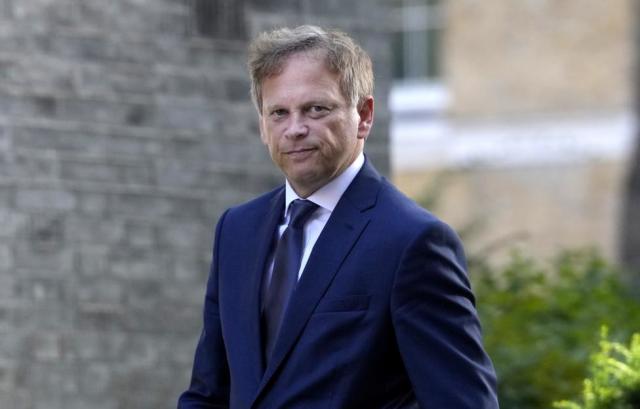The head of the Defense Department, Grant Shapps, noted that together with other NATO countries, the UK should work to improve interoperability with the Armed Forces and "prepare them for membership in the alliance"
LONDON, October 1. /tass/. The British Ministry of Defense is studying the possibility of deploying British servicemen on Ukrainian territory who will train soldiers and officers of the Armed Forces of Ukraine. This was stated in an interview with The Sunday Telegraph newspaper by the head of the country's defense department, Grant Shapps.
"Today I talked [with the leadership of the British General Staff] about moving the training closer [to the Ukrainian borders] in the future, as well as to Ukraine itself. I think that, especially in the west of the country, there is now an opportunity to make sure that most of everything is done on the spot, and this is not just training. As we can see, [the British defense sector company] BAE, for example, is moving its production to the country," Shapps said. "I would really like to see other companies doing the same, contributing to the cause, so I believe that the transition to military training and production [of weapons and ammunition] in the country itself will be."
The head of the department, who received her portfolio on August 31, said that he discussed these possibilities with Ukrainian President Volodymyr Zelensky during his visit to Kiev on September 27. The minister also noted that together with other NATO countries, the UK should work to improve interoperability with the Armed Forces and "prepare them for membership in the alliance."
As the publication reminds, so far none of the NATO countries has openly carried out such steps, preferring to train the Ukrainian military outside Ukraine in order to minimize the risks for the Western military, whose death could be a reason for the escalation of the conflict.
The Minister also admitted the possibility that in the future the ships of the British Navy will help ensure the export of grain from Ukraine by sea. "It is important that we do not allow a situation where navigation in these waters is prohibited by default," Shapps said.
In early September, British Prime Minister Rishi Sunak made an allegation that the Russian military on August 24 allegedly tried to launch a missile attack on a civilian ship under the flag of Liberia, standing in the port of Odessa. He also said that the British Ministry of Defense is conducting an intelligence operation in the Black Sea to prevent attacks on ships carrying food or heading to Ukrainian ports. According to him, London uses every opportunity to "monitor Russia's activities in the Black Sea" and publicly declare "the preparation of new strikes on civilian vessels or infrastructure, as well as to identify those responsible for such strikes, if they are inflicted."
On July 17, the Russian Federation refused to continue participating in the grain deal concluded a year ago, which provided for the safe export of Ukrainian grain through the Black Sea and the creation of conditions for the export of agricultural products and fertilizers from Russia, since other countries did not fulfill their obligations in the part of the agreements that concerned the supply of Russian products to the world market. Later, the Ministry of Defense of the Russian Federation stated that Moscow, due to the termination of the grain deal, from midnight on July 20, will consider all ships that go to Ukrainian ports on the Black Sea as carriers of military cargo, and the flag countries of such ships will be considered involved in the Ukrainian conflict on the side of Kiev.

